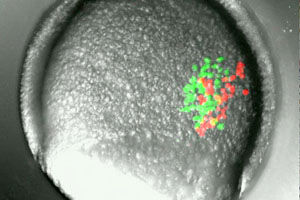Cancer stem cells isolated from kidney tumours
Advertisement
Scientists have isolated cancer stem cells that lead to the growth of Wilms’ tumours, a type of cancer typically found in the kidneys of young children. The researchers have used these cancer stem cells to test a new therapeutic approach that one day might be used to treat some of the more aggressive types of this disease. Wilms’ tumours are the most prevalent type of tumour found in the kidneys of children. While many patients respond well if the tumours are removed early by surgery and if patients are given chemotherapy, recurrences may occur and the cancer can spread to other tissues increasing the risks to the health of the patient. Conventional chemotherapy is toxic to all cells in the body and if given to children may lead to the development of secondary cancers when they become adults. Scientists are looking for ways to ensure that drugs are targeted specifically to tumour cells and some cells in a tumour may be more important to eradicate than others.
The researchers were able to remove parts of the tumours of cancer patients and graft them into mice. This procedure led to the growth of human tumours in mice. Cancer stem cells were identified in these tumours and it was shown that only the cancer stem cells and not the other cancer cells led to the development of new tumours upon grafting into additional mice. This process could be repeated multiple times and the animals could be used to study the development of cancer and test the action of potential new cancer drugs against Wilms’ tumours.
“We identified several biomarkers, including molecules that are on the cell surface, cell signaling molecules and microRNAs, that make it possible to distinguish between cancer stem cells or cancer-initiating cells and the rest of the cells in the tumour that are less likely to lead to cancer. In further experiments, we were able to show that an antibody drug that targets one such biomarker, the neural cell adhesion molecule, was able to either almost completely or in some cases completely eradicate the tumours that we induced in mice,”remarked Professor Benjamin Dekel, head of the Pediatric Stem Cell Research Institute and a senior physician at the Sheba Medical Center and the Sackler School of Medicine at Tel Aviv University, Israel. . “This preliminary result suggests that the cancer stem cells that we have identified, isolated and propagated may serve as a useful tool to look for new drug targets as well as new drugs for the treatment of Wilms’ tumours.”
Further work is needed to identify more precisely how the antibody drug used in the study (lorvotuzumabmertansine) affects cancer stem cell populations and to test the long-term suitability of the antibody drug to treat Wilms’ tumours in humans.
























































